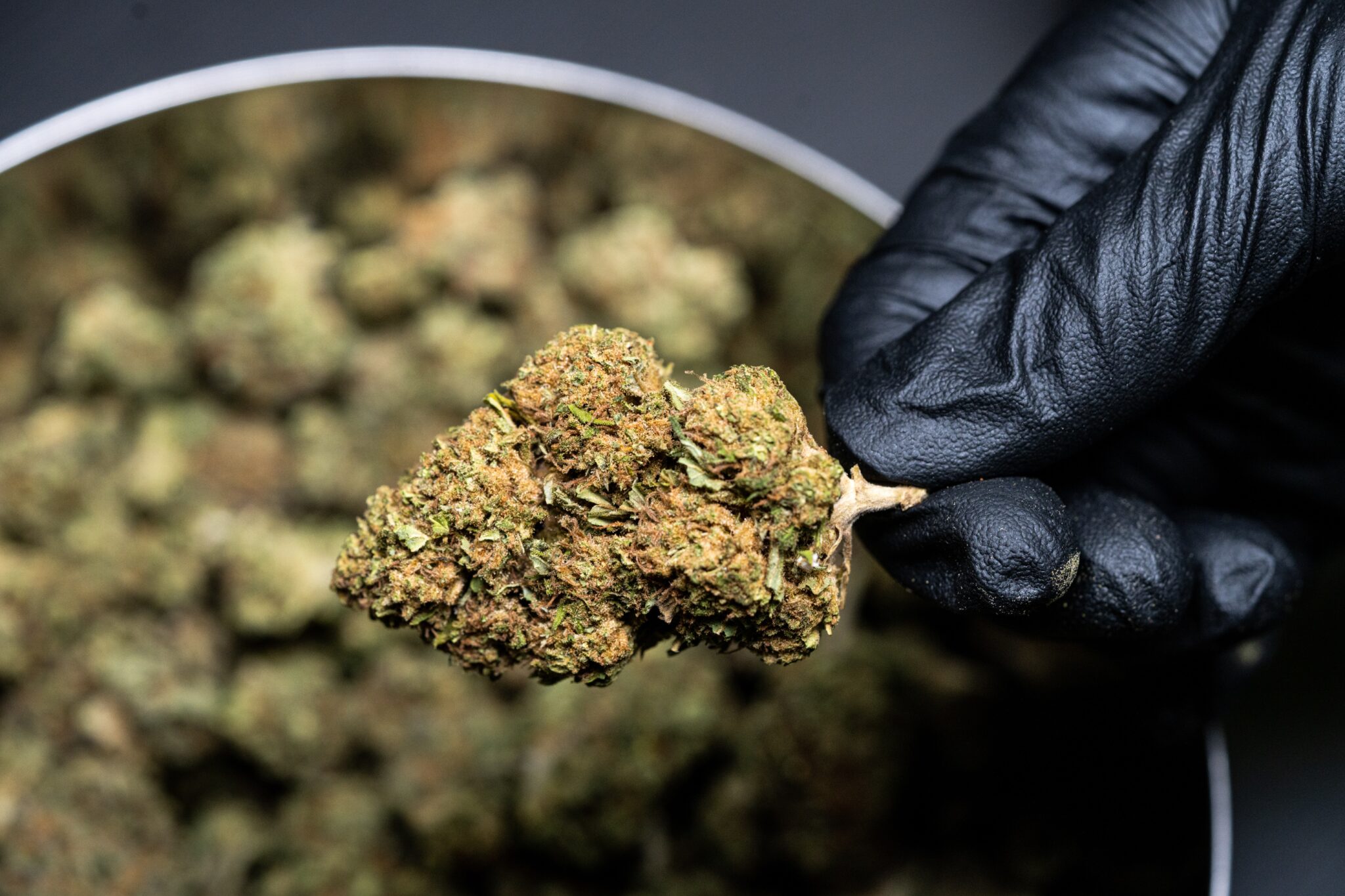Chemdawg is hybrid with a massive cult following. It’s all the best parts of indica and all the best parts of sativa with a very powerful kick. You’re getting that sedating body high from the indica influence, and a highly stimulating mental kick from its sativa side.
Chemdawg’s unique balance is what makes it so sought after as a strain. It’s one of those strains that makes it feel like it’s possible to have your cake and eat it too.
Every strain usually has a backstory, or at the very least, a clear lineage. Chemdawg is one of the most baffling strains that is readily available at most dispensaries. Perhaps it’s the mystery of Chemdawg that contributes to its allure. Well, the mystery and the sky-high cannabinoid content.
The cannabinoids and terpenes in Chemdawg
Every strain can significantly differ in potency. You’ll see very gentle variations of strains from some growers, while other growers seek to maximize the THC content of their strains to make them more appealing to long-time cannabis users with higher tolerances.
Chemdawg can be anywhere from 15% THC to 25% THC, with most batches coming in close to the 20% line. Chemdawg contains a negligible amount of CBD, usually measuring at less than 1%. Without a substantial amount of CBD to balance the THC, you’re going to feel every last bit of your high. That’s something you’ll want to consider when you’re choosing a variety of Chemdawg based on its THC percentage.
Chemdawg contains some highly elusive CBG, with some grows exceeding 1%. It’s very unusual to see a substantial amount of this cannabinoid in any strain. CBG is a converted form of CBGA, the mother of all cannabinoids. It’s known for its ability to reduce inflammation and has been tested with promising results for reducing ocular pressure in glaucoma patients.
Chemdawg has a very distinctive terpene profile that people who love the strain would sniff through a crowd. It’s very high in beta-caryophyllene, which is the same terpene that gives black pepper its distinctive smell. It’s also present in warm species and punchier herbs, like cloves and rosemary.
Its second most dominant terpene is myrcene, which is naturally abundant in parsley, lemongrass, and mangoes. It’s a little bit sour and punchy, but it’s bright and herbaceous at the same time.
These terpenes are balanced by the bright and zesty limonene, which is found in most citrus fruits, and pinene, which is the main aromatic compound of pine trees and pine needles.
These combine to create an aroma similar to gasoline. It’s very pungent, sharp, and spicy. This distinctive smell is likely where Chemdawg got its name from. The name may align with the fragrance, but it doesn’t necessarily align with the flavor. Chemdawg tastes like vibrant and sour lemons with a little bit of a forest-floor kick.
Many enthusiasts enjoy Chemdawg for the way it tastes. It can be hard to identify each flavor note when you’re smoking Chemdawg flower because there’s no real way to avoid the burning plant taste. If you want to get a better sense of what the terpenes taste like without the burnt plant material, try a Chemdawg extract.
Where did Chemdawg come from?
The internet is mostly great about documenting the parentage and complete lineage of every noteworthy strain. They’ve been great with everything except for Chemdawg. There is no definitive answer for where it came from, but we have good idea.
Chemdog is a person. Thankfully, that isn’t what he’s called on his birth certificate. (It’s not like his parents were Grimes and Elon Musk). Greg “Chemdog” Krzanowski is world-renowned as an expert cannabis cultivator. Ironically, he’s not the guy who created Chemdawg. He’s just a guy who really liked it.
His cultivation expertise suggests that Chemdawg is Sour Diesel. Not that it’s used to create Sour Diesel or of similar lineage to Sour Diesel, but that they are in fact the exact same strain.
Some speculation suggests that Chemdawg is a mashup of Northern Lights, Hashplant, and Kush. On paper, the terpene and cannabinoid profiles of each plant seem to make their resulting combination as Chemdawg plausible, but we might never really know.
The fact that so much cultivation and breeding took place during the cannabis dark ages where mentioning weed in public caused mass hysteria from religious people and political conservatives who were quick to declare people as evil hippie criminals have a lot to do with the number of blanks we need to fill.
We don’t have perfect information about how a lot of strains came to be because nobody was recording this stuff. It was a crime, and they didn’t want to get caught. We’ve been able to reverse engineer some things or obtain information from parts of the world where cannabis could legally be cultivated, but Chemdawg is still eluding us. The only people who might know for sure were too busy getting high with the Grateful Dead to take reliable notes.
